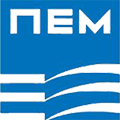
The whole world is talking about Greece and Greeks these days. When we moved to Canada last fall, Else Gellinek asked me to send her a few ‘untranslatable’ Greek words to be included in her post How culture can sometimes be distilled into a single word.
While researching online for suitable explanations of some all-time favorite Greek words with no direct translations in English or other languages, I came across the following abstract explaining the meaning of the Greek word “filotimo” in the webpage In Search of Excellence: Historical Roots of Greek Culture.
Filotimo This emphasis on integrity has arguably survived today in Greece as the proverbial filotimo. Almost every Greek will lay claim to possessing filotimo, since it is almost identified with being Greek. Although probably much less discussed, or philosophized about today, than was its corresponding "kalos k' agathos" in ancient times, nevertheless its connotations electrify people just as much. I submit that after centuries of hammering the idea of integrity on the people since ancient times, even during the 400 years of Turkish occupation, "filotimo" finally gained the status of a Jungian "collective unconscious" in modern Greece, where people no longer philosophize about it, or try to impose it on the masses, but simply assume its widespread existence. The term "filotimo" is difficult to translate literally into English, as are most terms that are pregnant with a variety of meanings that no one English word can capture exactly. Some writers that I have read even claim that it is literally impossible to translate. For our purposes here it may be translated as an internalized inclination to do good, with a strong sense of social responsibility. Etymologically, filotimo means "love of honor" (=philos+timi), although the honor referred to is not merely external, or for "show" purposes, but a psychologically internalized yardstick of goodness, as in the ancient "kalos k agathos." (see Tegopoulos-Fytrakis, Greek Lexicon, 5th edition, p. 821). Filotimo places perhaps less emphasis on personal appearance than the ancient kalos k' agathos, probably as a result of the long Christian era that de-emphasized everything worldly or material, including personal beauty. Nevertheless, even in spite of the many centuries during which Christian ideology changed considerably the thinking of the Greeks, in matters regarding the exercise of integrity it seems that on the contrary, the Christian period may have actually reinforced a widespread ancient trend to act with integrity. This is so because of the emphasis that Christianity places on being intrinsically good, if not self-sacrificial, especially regarding aid to the poor. Incidentally, it may be said that Christianity continued the heroic tradition of ancient Greece to the extent that it encouraged self-sacrifice that often bordered on martyrdom. Overall, though, as we shall see when we examine Ulich's theory, below, this type of heroic behavior was usually limited to morally desirable deeds, especially those which followed Christian doctrine, than encompass the whole spectrum of human endeavours. Few will deny that among modern Greeks, filotimo is not only widespread, but also highly desirable. By now it is considered almost a cliché that if you want Greek men to cooperate with you, then somehow you must appeal to their "filotimo," including their personal worth, or the degree to which what they are about to do is lofty. Modern Greek culture puts inordinate pressure on young people to acquire filotimo, often through their teacher's rhetorical exhortations to "act with filotimo." At others times, anyone may be asked by someone else such embarrassingly castigating questions as, "How could you act that way? Don't you have any filotimo left in you?" By making them confront the possibility of their "afilotimia" (=lack of filotimo, or integrity), they are at once chastised, or, worse, threatened with virtual exclusion from civilized company! It is considered very insulting in Greece to chastise someone as "afilotimo" (=lacking "filotimo"). Furthermore, and perhaps most painful, to be branded as "afilotimos" is sometimes even equated as being dispossessed of your true "Greekness."I also came across this amazing video describing what the word ‘filotimo’ means. After 10 months away from Greece, it made me feel nostalgic of my home country. I think it describes very well what Greeks are all about just by focusing on this one unique word.
Do you have such hyper-special words in your language? Ones that are ‘untranslatable’ in other languages?
Header image credit: I love Crete on Facebook Header image edited with Canva

Catherine Christaki has been a full-time English-Greek translator since 2001 and co-owner of Toronto-based Lingua Greca Translations since 2012. Her specializations include IT (lead Greek translator for Apple since 2011), Medical and Technical texts. In 2013, she translated the popular guide for translation buyers, Translation: Getting It Right, into Greek. She is active on social media, especially Twitter @LinguaGreca, which has been voted among the Top 25 Language Twitterers 5 years in a row (2011-2015). She writes the translation blog Adventures in Technical Translation and regularly talks about social media and blogging for translators in interviews and conferences.









